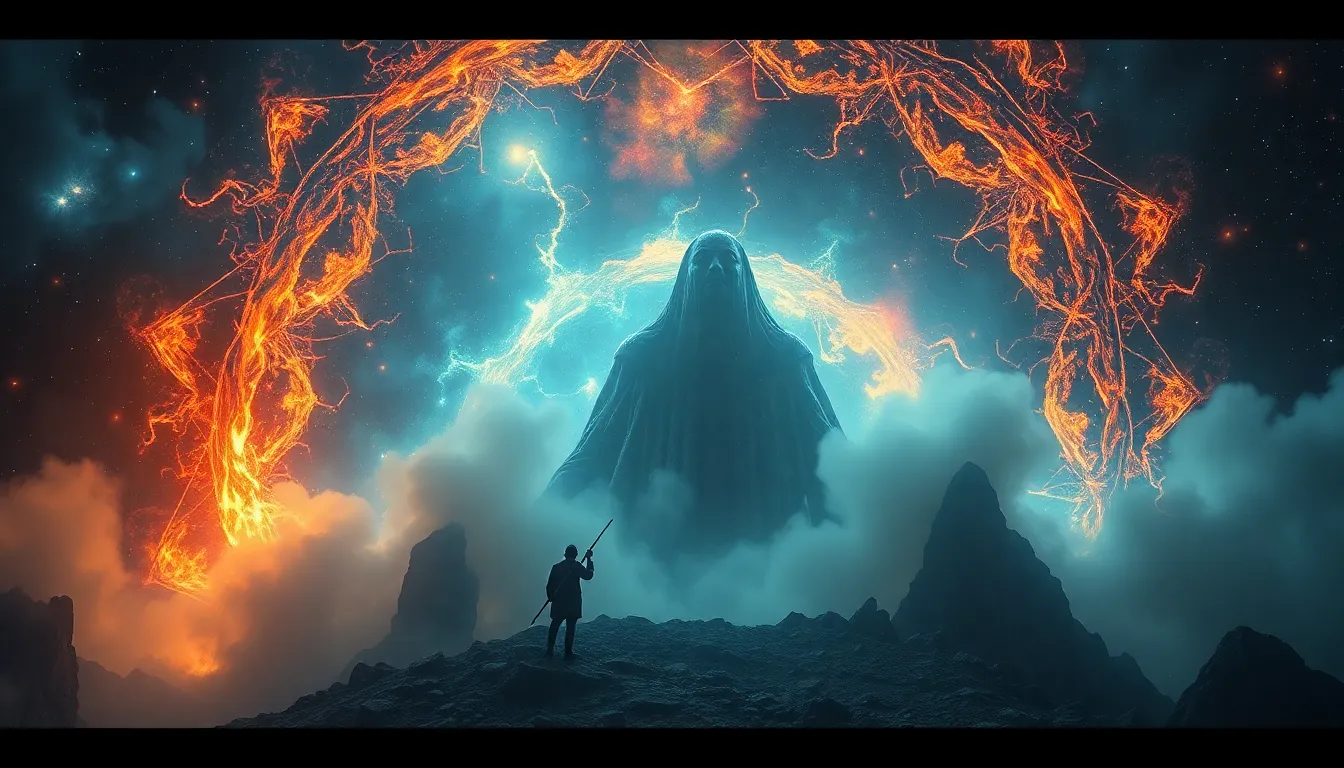The Most Eccentric End of the World Predictions in History
Introduction: The Fascination with Apocalypse
Throughout history, humanity has been captivated by the idea of the apocalypse. This fascination with the end of the world can be traced back to ancient civilizations and continues to resonate in modern culture. The psychological allure of these predictions often stems from a combination of fear, curiosity, and the desire for meaning in an uncertain world.
Apocalyptic beliefs serve various cultural functions, such as providing a narrative framework for understanding chaos or moral decay. They often reflect societal anxieties and can lead to both unity and division among people. In a world fraught with challenges, the prospect of an impending apocalypse can be both comforting and terrifying.
Ancient Prophecies: From Nostradamus to the Mayan Calendar
Ancient prophecies have significantly influenced societies and their beliefs about the end times. One of the most famous figures associated with such predictions is Nostradamus, a 16th-century French astrologer. His cryptic quatrains have been interpreted in countless ways, with many enthusiasts claiming that he foresaw major historical events, including wars and natural disasters.
Another notable prediction came from the Mayan calendar, which became a focal point for apocalyptic fears leading up to December 21, 2012. Many believed that this date marked the end of the world, leading to widespread panic and speculation. Although the date passed without incident, the significance of the Mayan calendar continues to be a topic of fascination.
Religious Predictions: Prophecies from Sacred Texts
Religious texts are rich sources of apocalyptic prophecies. The Book of Revelation in the Christian Bible describes a series of catastrophic events leading to the end of the world, influencing countless interpretations and beliefs about the Second Coming of Christ.
Other religions also contain end-time predictions:
- Hinduism: The concept of Kali Yuga, a period of darkness and decay, is believed to precede the eventual renewal of the universe.
- Islam: Various Hadiths mention signs of the Day of Judgment, including natural disasters and moral decline.
The Y2K Scare: Technology and the Apocalypse
The turn of the millennium brought about one of the most significant modern apocalyptic predictions: the Y2K bug. As the year 2000 approached, fears escalated that computer systems would fail due to their inability to recognize the new date format. This panic led to extensive preparations and widespread anxiety that systems would collapse, leading to societal chaos.
Though the transition to the year 2000 passed largely without incident, the Y2K scare highlighted how technological advancements could amplify fears of apocalypse, demonstrating the intersection of technology and societal anxiety.
Planetary Catastrophes: Predictions of Cosmic Disasters
Some end-of-the-world predictions revolve around cosmic events. The Nibiru cataclysm theory, for example, posited that a rogue planet would collide with Earth, leading to mass destruction. Despite being debunked by astronomers, such theories capture the imagination and highlight the role of pseudoscience in shaping apocalyptic beliefs.
Other predictions involved planetary alignments and celestial phenomena, often leading to speculation about their potential catastrophic effects on Earth. These ideas underscore humanity’s fascination with the cosmos and its perceived power over our fate.
Cult Predictions: The Role of New Religions and Sects
Throughout history, various cults have emerged with strong apocalyptic beliefs. Groups like Heaven’s Gate and The Branch Davidians have made headlines with their predictions of imminent doom. These cults often attract followers by promising salvation or enlightenment in the face of a chaotic world.
The psychology behind these beliefs can be complex, involving a mix of hope, fear, and the need for belonging. The consequences of such predictions can be dire, sometimes leading to tragic outcomes and mass suicides, as seen in the case of Heaven’s Gate.
Modern Predictions: Social Media and the Spread of Doomsday Theories
In the digital age, the spread of apocalyptic predictions has accelerated, largely due to the internet and social media. Platforms like Facebook and Twitter allow for rapid dissemination of doomsday theories, often fueled by sensationalism and misinformation.
Recent examples of doomsday predictions that gained traction online include:
- The “End of Days” prediction by certain conspiracy theorists in 2020.
- Claims of a “Planet X” set to collide with Earth.
These examples illustrate how the modern landscape of information sharing can amplify fears and lead to widespread panic.
Cultural Reflections: End of the World in Literature and Film
Literature and cinema have long explored apocalyptic themes, reflecting societal fears and desires. Notable works include:
- The Road by Cormac McCarthy – A haunting portrayal of survival in a post-apocalyptic world.
- Mad Max series – Illustrating a dystopian future characterized by collapse and chaos.
- Children of Men – A narrative exploring themes of hope and despair in a world facing extinction.
These stories not only entertain but also provoke thought about societal values, human nature, and the potential consequences of our actions.
Skepticism and Criticism: Debunking the Predictions
The role of skeptics is crucial in challenging apocalyptic predictions. By applying critical thinking and scientific reasoning, skeptics often debunk unfounded claims and expose logical fallacies that underpin many doomsday theories.
Common logical fallacies include:
- Appeal to Fear: Using fear as a primary motivator without evidence.
- Confirmation Bias: Focusing only on information that supports pre-existing beliefs.
Encouraging skepticism and scientific literacy is essential in combating the spread of unfounded apocalyptic fears.
Conclusion: Lessons from Eccentric Predictions
The history of eccentric end-of-the-world predictions serves as a rich tapestry of human thought and emotion. These predictions reflect deep-seated fears, cultural anxieties, and the desire for meaning in uncertain times. By examining these eccentric beliefs, we can glean important lessons about the importance of critical thinking and the need for scientific literacy.
Ultimately, understanding the roots of apocalyptic thinking can help us navigate our fears more effectively, allowing us to focus on constructive solutions rather than succumbing to panic.



